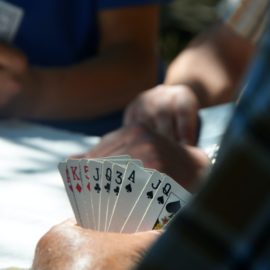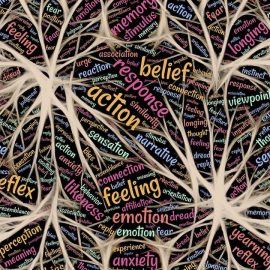

This article is an excerpt from the Shortform book guide to "Come As You Are" by Emily Nagoski. Shortform has the world's best summaries and analyses of books you should be reading.
Like this article? Sign up for a free trial here .
What causes a lack of sexual desire? Does a lack of desire happen mostly due to physical or psychological factors?
According to sex researcher Emily Nagoski, lack of desire can most often be attributed to psychological factors (e.g. context, emotional states). In her book Come as You Are, she even goes as far as to say that there isn’t really a lack of desire—just an abundance of the wrong contextual factors, such as the circumstances, emotional states, and cultural messaging.
Here is what Nagoski has to say about the lack of desire and what to do about it.
The Causes of Lack of Desire
Nagoski says that a lack of sexual desire is caused by emotional factors—like stress, depression, and a lack of self-compassion—that are made worse by our sex-negative culture and mismatched desire types in relationships. By this, she means the toxic dynamic that often develops between partners with spontaneous and responsive desire: The partner with responsive desire feels increasingly defensive and guilty in turning down sex, and the partner with spontaneous desire feels increasingly frustrated and rejected in initiating it.
(Shortform note: Lack of desire isn’t the only consequence that arises from the toxic dynamic that can develop between partners of mismatched desire types. The rise in tension that develops as the cycle continues can also negatively impact the couple’s emotional well-being and relationship. One consequence of the cycle, for example, is that it can cause individuals to feel hurt because their partner isn’t addressing their needs. Another outcome is a loss of confidence, especially in the partner who feels consistently rejected. Additionally, the tension can ultimately lead to a lack of trust in the relationship, as the longer the problem persists, the more the couple loses faith in their ability to overcome obstacles together.)
In short, Nagoski concludes, the reality is that there isn’t really a lack of desire—just an abundance of the wrong contextual factors, such as the circumstances, emotional states, and cultural messaging. All of these things activate the SIS and inhibit our desire for sex.
(Shortform note: While it may be true that contextual factors are responsible for lack of desire, the causes may be more nuanced than Nagoski explores in her discussion. For instance, research suggests that certain factors may be more relevant depending on the population. According to one study that examined the effect of socio-demographic factors on sexual desire in women in Iran, low satisfaction with income, being married for at least 10 years, and a woman being age 17 or under during her first sexual experience were significantly associated with low desire.)
How to Increase Desire in Your Relationship
Regardless of whether you experience spontaneous or responsive desire, crossing the threshold involves experiencing enough pleasure to want more—to want sex. But how do we make that happen?
Nagoski suggests that the key is context. Because desire is the interaction of pleasure and context, creating an environment that makes us feel excited for sex and uninhibited by what our brain sees as threats is the best way to ensure great sex with our partner.
Although there’s variation in what each of us perceives to be a favorable context, Nagoski says research shows that partners agree on certain characteristics that make sex most enjoyable:
Vulnerability: Vulnerability comes from being fully present in the moment, allowing yourself to be free of distractions, and welcoming a sense of inner peace. It also means you’re willing to accept yourself as you are.
(Shortform note: Vulnerability researcher Brené Brown suggests several things we can do to help us be more comfortable with vulnerability: recognize that vulnerability takes courage, stop worrying about what others think of us, let go of being perfect, and practice mindfulness.)
Connection: Feeling connected to your partner during sex develops from a sense of respect, caring, and trust within your relationship. You encourage open communication with your partner and are attentive to each other’s needs.
(Shortform note: How can you build the respect, caring, and trust that leads to a stronger connection with your partner? Renowned psychologist John Gottman developed a list of 7 research-based principles to help couples build a deep and lasting connection.)
Exploration: Creating a space for sexual exploration comes from giving yourself the freedom to express yourself, taking risks, and having fun.
(Shortform note: Openness to expressing yourself and taking risks is only possible if you feel you’re in a safe space. One way to foster this sense of security is to explicitly discuss your sexual boundaries with your partner. To do this, start by deciding which sexual activities you’re each personally comfortable with on your own. Then, go through your lists together, taking time to discuss each one openly and without judgment.)

———End of Preview———
Like what you just read? Read the rest of the world's best book summary and analysis of Emily Nagoski's "Come As You Are" at Shortform .
Here's what you'll find in our full Come As You Are summary :
- Why women should change the way they talk, think, and feel about their sexuality
- A look at the misinformation and harmful cultural messaging surrounding sex
- A discussion around the individual experiences of arousal, desire, and orgasm






